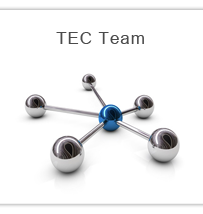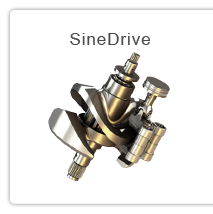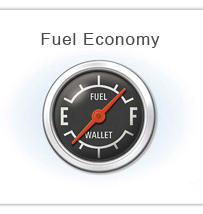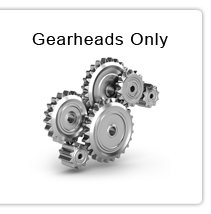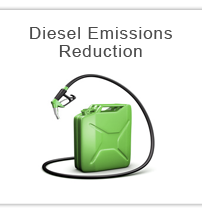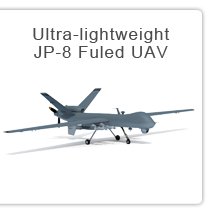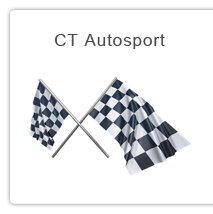





TEC engines provide a low-cost, durable means of varying engine compression ratio to provide substantially lower emissions and improved fuel economy in diesel engines. Optimization of compression ratio is accomplished through a unique, patented method that is as mechanically simple as shifting a dog gear in a transmission.
TEC engines can utilize variable compression to reduce both soot and NOx emissions in diesel engines by extending ignition delay. By extending ignition delay, the air and fuel are able to mix better before burning, reducing soot formation and allowing more EGR to be used to reduce NOx.
The ability to vary compression ratio additionally gives TEC engines potential to significantly expand the operating range for HCCI. While operating in HCCI mode, our engines will have the potential to produce near zero NOx emissions and up to 10% better fuel economy than a standard diesel engine of similar power. We estimate that, by using variable compression, it will be possible to remain in HCCI mode for up to 90% of a light-duty diesel cycle and up to 70% of a heavy-duty cycle.
In high performance applications, variable compression can also be used to greatly enhance power density while still maintaining the structural integrity of the engine.
Benefits of TEC variable compression in diesel applications include:
- Up to 10% better fuel economy than a standard diesel engine of similar power in a light-duty cycle by expanding the operating range of HCCI mode
- Up to 80% less NOx emissions by expanding the operating range of HCCI mode
- Ability to vary compression ratio to substantially reduce soot and particulate formation using ignition delay (especially when high amounts of EGR are being used to reduce NOx)
- Ability to operate in HCCI mode for as much as 90% of a standard drive cycle when used in light-duty applications, and ability to operate in HCCI mode for up to 70% of the drive cycle in heavy duty applications
- Ability to run HCCI in all temperature conditions by adjusting compression ratio
- Reduced cost compared to a conventional diesel engine due to the ability to reduce exhaust emissions aftertreatment
- Lower engine friction and better cylinder durability
- Higher torque.





